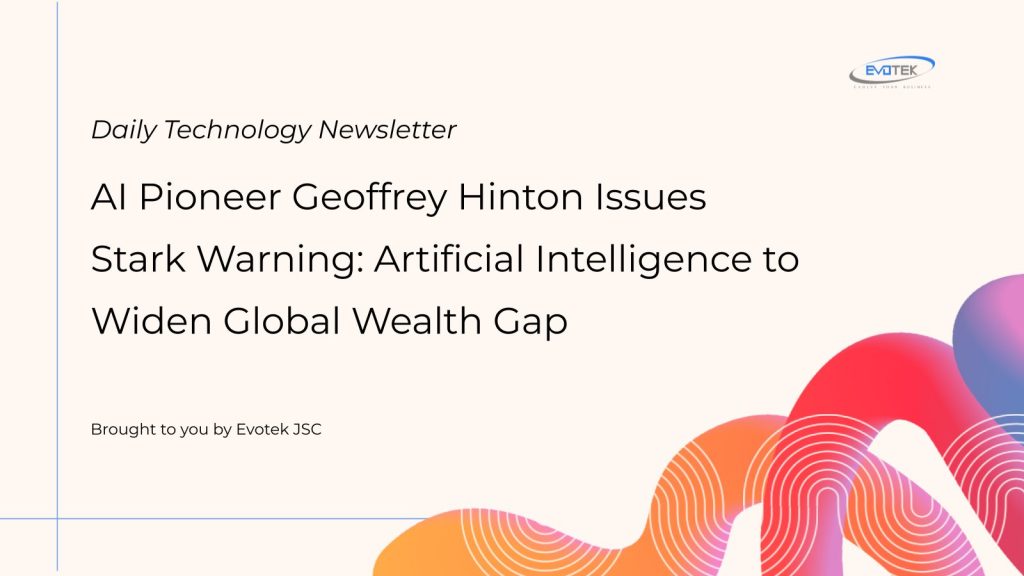Renowned computer scientist Geoffrey Hinton, often hailed as one of the “Godfathers of AI,” has issued a sobering prediction regarding the future economic impact of artificial intelligence. Hinton suggests that while AI advancements will significantly enrich a select few, the majority of the population could face economic decline.
This stark forecast from a leading authority in the field underscores growing concerns about how rapidly evolving AI technologies will reshape our socio-economic landscape. Hinton’s perspective highlights a potential future where the benefits of AI are concentrated, exacerbating existing wealth disparities rather than fostering widespread prosperity.
The Looming Specter of AI and Economic Inequality
Hinton’s comments bring into sharp focus the debate surrounding AI’s role in the global economy. As artificial intelligence becomes increasingly sophisticated, capable of automating complex tasks previously performed by humans, questions arise about job displacement and the concentration of wealth among those who own or control these advanced systems.
Experts and policymakers are grappling with the implications of such a future. If AI predominantly benefits a small segment of society, it could lead to unprecedented levels of economic stratification. This scenario poses significant challenges for governments and communities striving for inclusive growth and equitable distribution of technological dividends.
Understanding the “Godfather of AI’s” Concerns
Geoffrey Hinton’s profound insights stem from decades of pioneering work in neural networks and deep learning, fundamental components of modern AI. His transition from an optimistic proponent to a cautious observer of AI’s societal effects lends considerable weight to his warnings. His concerns are not merely speculative but arise from an intimate understanding of AI’s capabilities and its trajectory.
The potential for AI to dramatically enhance productivity and create new industries is undeniable. However, Hinton’s warning serves as a crucial reminder that without careful planning and ethical considerations, these advancements could inadvertently contribute to a more unequal world, benefiting a privileged few at the expense of many.
Navigating the AI Revolution Responsibly
Addressing the challenges outlined by Hinton will require proactive measures, including policy frameworks designed to mitigate job losses, promote retraining and upskilling initiatives, and explore new economic models that ensure broader participation in AI-driven prosperity. The conversation around AI’s future must extend beyond technological innovation to encompass its profound social and economic implications for all.

 日本語
日本語 한국어
한국어 Tiếng Việt
Tiếng Việt 简体中文
简体中文